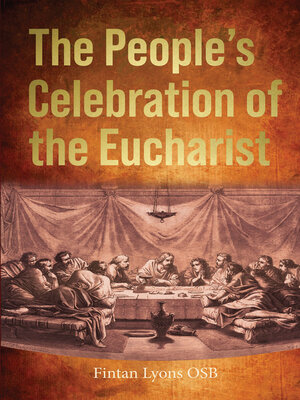
Sign up to save your library
With an OverDrive account, you can save your favorite libraries for at-a-glance information about availability. Find out more about OverDrive accounts.
Find this title in Libby, the library reading app by OverDrive.



Search for a digital library with this title
Title found at these libraries:
| Library Name | Distance |
|---|---|
| Loading... |
The Eucharist is more than just a rite performed by a presiding priest in the presence of a congregation, though for many centuries it was seen by so many to be just that. The truth, however, is that its celebration, when viewed as an activity of the People of God, the Body of Christ, means that there is a fundamental unity incorporating both ordained and non-ordained. From a deeper perspective, the task becomes one of exploring what the togetherness of priest and people implies, and finding a language to express it. In other words, what we are to understand by ‘the people’s participation’ and ‘the people’s celebration’? What does it mean when the presider (the appropriate word, not ‘celebrant’) speaks of preparing to celebrate ‘the sacred mysteries?
This book is about the changes introduced by the Second Vatican Council, why they were made, and their implications, but also about the limitations of their effectiveness that emerge when the role of the faithful is considered in depth. The issues can be stated in terms of establishing what ‘people’ actually means when we talk of the people’s celebration of the Eucharist and what it is they are celebrating.
This book is about the changes introduced by the Second Vatican Council, why they were made, and their implications, but also about the limitations of their effectiveness that emerge when the role of the faithful is considered in depth. The issues can be stated in terms of establishing what ‘people’ actually means when we talk of the people’s celebration of the Eucharist and what it is they are celebrating.







